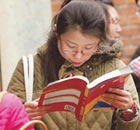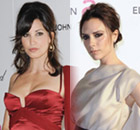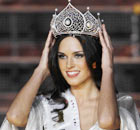Global General
Iraqi voters undaunted by attacks that kill 36
(Agencies)
Updated: 2010-03-08 06:31
 |
Large Medium Small |
BAGHDAD: Iraqis defied insurgents who lobbed hand grenades at voters and bombed a polling station Sunday in an attempt to intimidate those taking part in elections that will determine whether their country can overcome deep sectarian divides as US forces prepare to leave.
| ||||
Sunnis and Shiites seemed united in one way Sunday _ defiance in the face of violence. Many came out of polling booths waving fingers dipped in purple ink in a now-iconic image synonymous with Iraq's democracy. In one Baghdad neighborhood, relatives who had just lost a family member in a bombing walked down to the polling booth to vote.
The violence was a direct challenge to Prime Minister Nouri al-Maliki who has gained popularity as violence across the country has plummeted.
"I voted for Nouri al-Maliki because I trust him as a man who succeeded in getting rid of militias and building a strong state," said Saadi Mahdi, a 43-year old engineer in the southern oil city of Basra. It was there that al-Maliki first established himself as a leader willing to go against his fellow Shiites when he routed militias aligned with anti-American cleric Muqtada al-Sadr.
It was an election day that demonstrated starkly how far the country has come since the last nationwide parliamentary vote in December 2005 and how much still holds it back.
Instead of unified sectarian parties playing strictly to their Shiite, Sunni and Kurdish voters, the political blocs contesting the election were much more fractured and made at least some effort to cross over into other sects. Whereas only party names were known in the 2005 ballot _ in order to protect candidates from assassination _ this time cities were plastered with candidates' faces on posters as Iraqis voted for individual people.
And the American military presence so prominent in 2005 was limited on election day to helicopters buzzing over head as a massive deployment of Iraqi forces took the lead on the ground.
Still the violence that shook Baghdad served as a reminder of the insurgency's persistence and adaptability.
Insurgents used mostly rockets, mortars and explosive-filled plastic bottles hidden under trash to terrorize voters on their way to the polls. With those tactics, they managed to get around a vehicle ban in place across the capital for most of the day and killed 36 people, almost all of them in Baghdad.
Al-Maliki faced a double challenge at the polls. Al-Sadr has aligned with another Shiite religious party _ the Supreme Islamic Iraqi Council _ to seek the prime minister's job. On the other side, al-Maliki is being challenged by former Prime Minister Ayad Allawi, a secular Shiite, whose nonsectarian stance and criticism of the current government has won him secular Shiite followers as well as Sunni supporters.
"They symbolize the unity of Iraq," Hasan Aziz, a Sunni Turkoman, in the northern city of Tal Afar, in Ninevah province, who voted for Allawi's Iraqiya alliance. "It will bring us together."
No one coalition is expected to win an outright majority in the 325-seat parliament so the coalition that gets the largest number of votes will be tasked with cobbling together a government with other partners _ possibly a tough task for al-Maliki who has angered parties across the political spectrum during his nearly four years in office. But in Iraq's freewheeling democracy, no one believes that any political alignment is off the negotiating table.
The two Kurdish parties, known for their political unity, are thought to be key to forming any future government. But even they have been divided with an upstart party called "Gorran" eating into their dominance.
Kurds have harnessed their power with the two main parties _ KDP and PUK _ forming a solid front on the national level on issues they consider important such as determining the future of disputed areas claimed by both Arabs and Kurds. But Gorran's rise could mean a less unified front that may weaken Kurdish power.
Many have viewed the election as a key test of whether the country can finally overcome the sectarianism that has divided Iraq, a country once ruled by Saddam Hussein's iron-fisted Sunni-minority rule then by a Shiite-majority government.
But the election season showed just how difficult it will be for Iraq to put that deadly chapter behind it. Instead of issues such as security or government services dominating the campaign, it centered on the country's divisive Baathist past after a government committee with murky legal standing banned hundreds of candidates for alleged ties to Saddam's regime _ including many high-profile Sunni candidates.
After polls opened in the morning, loudspeakers from mosques across the country called on Iraqis to vote. In the Shiite Baghdad neighborhood of Hurriyah _ where three people were killed when someone threw a grenade into a crowd of voters _ clerics challenged people to go to the polls like "arrows to the enemies' chest."
In the mostly Sunni neighborhood of Azamiyah in northern Baghdad, Walid Abid was speaking as mortars boomed several hundreds yards (meters) away.
"I am not scared and I am not going to stay put at home," said Abid. "Until when? We need to change things. If I stay home and not come to vote, Azamiyah will get worse."
Polling places were surrounded by barbed wire, both male and female voters were subjected to intensive searches and at times the only vehicles on the road were Iraqi army Humvees and police SUVs.
An Interior Ministry official speaking on condition of anonymity because he was not authorized to speak to the media said a total of 35 people died in Baghdad but did not have a breakdown of where the deaths occurred. In the city of Mahmoudiya, about 20 miles south of Baghdad, a bomb inside a polling center killed a policeman, bringing the day's total to 36.
There was no claim of responsibility but US and Iraqi officials described the violence as the work of insurgents trying to intimidate voters. An al-Qaida front group in an Internet posting early Sunday said anyone taking part in the vote would risk "God's wrath and the mujahideen's weapons."
About 6,200 candidates competed for 325 seats in the new parliament, Iraq's second, full-term legislature since the 2003 US-led invasion seven years ago this month.
Iraqi election officials have said that they will announce preliminary results after at least 30 percent of the ballots are counted in all of the country's 18 provinces, a process that could take at least a few days.
It was too early to tell if turnout would top the 70 percent during the December 2005 polls although officials had estimated before the vote that turnout would be lower.









